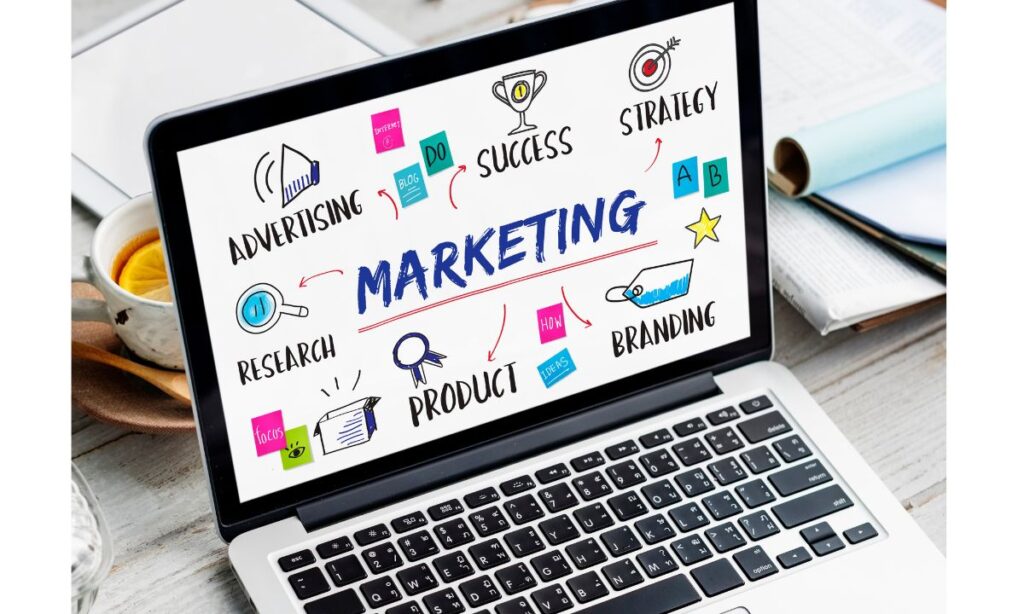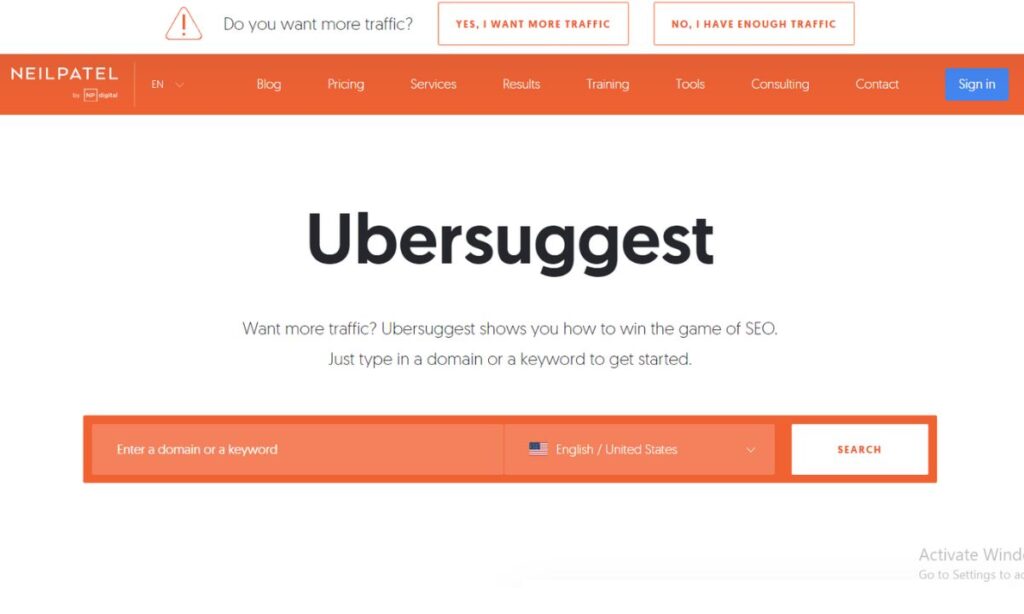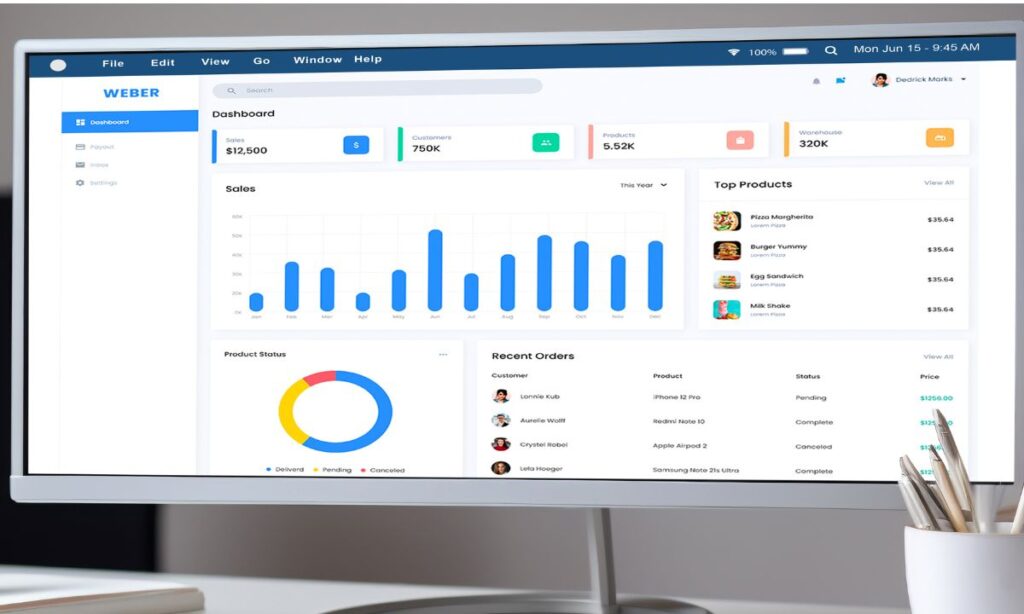In today’s fast-paced digital age, online marketing has become the backbone of small business success. But navigating the vast digital marketing landscape can feel overwhelming. If you’re a small business owner, you might wonder, “Where do I begin?” Don’t worry—we’ve got you covered! This blog post is packed with actionable tips on online marketing, the best digital marketing strategies, and techniques that will elevate your business and help you stand out.
Why Digital Marketing Matters for Small Businesses
Digital marketing levels the playing field, allowing small businesses to compete with larger competitors without requiring a massive budget. It’s not just about being online; it’s about being seen, heard, and trusted. With the right online marketing strategies, your business can attract new customers, build strong relationships, and boost revenue. Let’s dive into the best tips and techniques to make it happen!
1. Search Engine Optimization (SEO)
If your small business isn’t optimizing for search engines, you’re missing out on a goldmine of potential customers. SEO ensures your website ranks higher in search engine results, driving organic traffic.
Actionable SEO Tips for Small Businesses:
- Optimize for keywords: Use relevant keywords like tips on online marketing and best digital marketing strategies throughout your website.
- Create quality content: Publish blog posts, guides, and FAQs that answer your audience’s questions.
- Improve on-page SEO: Use meta titles, descriptions, and alt text for images.
- Build backlinks: Partner with local businesses or bloggers to link to your site.
- Use local SEO: Optimize for location-specific searches by adding your address and creating local content.
Pro Tip: Focus on long-tail keywords like “best digital marketing strategies for small businesses” to attract niche traffic.
2. Content Marketing
Content marketing is the heart of digital marketing. By providing valuable content, you position your business as an authority in your industry.
Effective Content Marketing Strategies:
- Start a blog: Share tips, industry news, and success stories related to your niche.
- Produce video content: Engage your audience with tutorials, behind-the-scenes videos, or customer testimonials.
- Repurpose content: Turn blogs into infographics, podcasts, or videos to reach different audiences.
Fun Fact: Businesses that prioritize content marketing see six times more conversions than those that don’t!
3. Social Media Marketing
Social media is a powerful tool for connecting with your audience, showcasing your products, and building a loyal following.
Social Media Marketing Tips:
- Choose the right platforms: Focus on where your audience spends the most time (e.g., Instagram for visuals, LinkedIn for professionals).
- Post consistently: Create a content calendar to stay active and engage your followers.
- Use media marketing tips: Incorporate eye-catching visuals, engaging captions, and trending hashtags.
- Leverage stories and reels: Short-form content like Instagram Reels or TikToks can boost visibility.
Pro Tip: Respond promptly to comments and messages to foster trust and engagement.
4. Know Your Audience
Understanding your audience is the foundation of any successful digital marketing strategy.
How to Know Your Audience Better:
- Create buyer personas: Define your ideal customers, including their demographics, pain points, and buying habits.
- Use analytics tools: Platforms like Google Analytics or Facebook Insights reveal what your audience likes and engages with.
- Engage directly: Conduct surveys or ask questions on social media to gather feedback.
Emotional Connection Tip: Speak their language and address their pain points for stronger bonds.
5. Email Marketing
Email marketing remains one of the most cost-effective ways to nurture leads and retain customers.
Email Marketing Techniques:
- Build an email list: Offer incentives like discounts or free eBooks for email sign-ups.
- Segment your audience: Personalize your emails based on customer preferences.
- Automate campaigns: Use tools like Mailchimp or HubSpot to send welcome emails, reminders, or seasonal promotions.
- Include CTAs: Drive action with clear calls to action like “Shop Now” or “Subscribe Today.”
6. Paid Advertising
If you want quick results, paid ads are the way to go. Platforms like Google Ads and Facebook Ads can drive targeted traffic to your website.
Tips for Effective Paid Advertising:
- Set a budget: Start small and scale as you see results.
- Target the right audience: Use demographics, interests, and behaviors to narrow down your ad reach.
- A/B test ads: Experiment with different headlines, images, and CTAs to find what works best.
7. Optimize Your Website
Your website is your digital storefront. Ensure it provides an excellent user experience.
Website Optimization Checklist:
- Speed matters: Use tools like Google PageSpeed Insights to improve loading times.
- Make navigation easy: Ensure users can find what they need within 2-3 clicks.
- Use clear CTAs: Guide visitors to take action with buttons like “Get a Quote” or “Contact Us.”
8. Google Business Profile
For local businesses, having a Google Business Profile (GBP) is essential.
How to Optimize Your Google Business Profile:
- Add accurate information: Include your address, phone number, and business hours.
- Encourage reviews: Positive reviews improve your visibility and credibility.
- Use images: Showcase your products, services, or workspace.
9. Optimize for Mobile
With most users browsing on their phones, a mobile-friendly website is non-negotiable.
Mobile Optimization Tips:
- Use responsive design: Ensure your site adjusts to different screen sizes.
- Simplify navigation: Keep menus and buttons thumb-friendly.
- Test frequently: Regularly check your site on various devices.
10. Start a Blog
Blogging is a long-term strategy to attract traffic and showcase expertise.
Blogging Tips:
- Focus on evergreen topics: Write content that remains relevant over time.
- Use keywords strategically: Target terms like online marketing strategies to improve rankings.
- Promote your posts: Share blogs on social media and through email campaigns.
11. Produce Video Content
Videos grab attention and keep users engaged longer than text alone.
Video Ideas:
- Tutorials: Teach users how to use your product or service.
- Behind-the-scenes: Share what goes into making your product.
- Live sessions: Host Q&A sessions or product demos.
12. Local SEO
For small businesses, dominating local search results can drive significant foot traffic.
How to Succeed in Local SEO:
- Add local keywords: Include city names in your content and meta descriptions.
- Use location pages: Create dedicated pages for each of your locations.
- Get listed: Add your business to online directories like Yelp and Yellow Pages.
13. Collaborate with Influencers
Partnering with influencers can amplify your reach and credibility.
Influencer Marketing Tips:
- Choose the right influencer: Focus on micro-influencers who align with your brand.
- Set clear goals: Define what you want to achieve—brand awareness, leads, or sales.
- Track performance: Measure success using metrics like engagement rate and ROI.
14. Affiliate Marketing
Affiliate marketing allows you to tap into a network of partners who promote your products for a commission.
How to Start Affiliate Marketing:
- Choose a platform: Use affiliate networks like ShareASale or Rakuten.
- Recruit affiliates: Partner with bloggers, influencers, or industry experts.
- Provide resources: Equip affiliates with banners, links, and promotional content.
Conclusion
Digital marketing offers endless opportunities for small businesses to grow and thrive. By implementing these tips on online marketing and the best digital marketing strategies, you can connect with your audience, increase visibility, and drive sales. Remember, success takes time—stay consistent, analyze your results, and adjust your strategies as needed. Your digital marketing journey starts now—go conquer the digital world! 🌟
FAQs
What is digital marketing, and why is it important for small businesses?
Digital marketing involves promoting your business online through various channels like search engines, social media, email, and websites. It is essential for small businesses because it helps them reach a larger audience, build brand awareness, and compete with bigger companies on a smaller budget.
How can SEO benefit my small business?
SEO (Search Engine Optimization) increases your website’s visibility in search engine results, driving more organic traffic. This helps attract potential customers, improve credibility, and boost conversions without spending on ads.
What are the best digital marketing strategies for small businesses?
Some effective strategies include:
Optimizing for SEO
Investing in content marketing
Engaging in social media marketing
Using email campaigns to nurture leads
Running paid ads for quick results
Optimizing your website for mobile and speed
Utilizing local SEO and Google Business Profile
How often should I post on social media?
Consistency is key in social media marketing. Aim to post at least 3-5 times a week on platforms where your audience is active. Use tools like content calendars to plan and maintain consistency.
How do I create a successful email marketing campaign?
To create an effective email campaign:
Build a segmented email list for personalized messages.
Write compelling subject lines to increase open rates.
Include clear calls-to-action (CTAs).
Use automation to streamline processes.
Track performance metrics like open and click-through rates.
Should I invest in paid advertising?
Yes, if your budget allows, paid advertising is an excellent way to gain quick visibility and drive traffic. Start small with platforms like Google Ads or Facebook Ads, and target specific demographics to maximize ROI.
What is the role of content marketing in digital marketing?
Content marketing involves creating valuable content to attract, engage, and retain your audience. It helps build trust, establish authority in your niche, and drive long-term organic traffic through blogs, videos, and infographics.
How do I optimize my website for mobile users?
To optimize for mobile:
Use responsive web design.
Ensure fast loading times with optimized images and minimal code.
Simplify navigation for smaller screens.
Test your website on multiple devices regularly.
What is local SEO, and how can I implement it?
Local SEO focuses on optimizing your online presence for location-specific searches (e.g., “coffee shops near me”). To implement it:
Use location-specific keywords.
Claim your Google Business Profile and keep it updated.
Collect and respond to online reviews.
Get listed in local directories.
How can video content improve my digital marketing efforts?
Video content is highly engaging and can improve user retention and conversions. Tutorials, product demonstrations, and customer testimonials work exceptionally well for building trust and boosting visibility.
Welcome to Digital Profit Track, sharing insighs on digital marketing, freelancing, and online earning.
Contact me at: team@digitalwsf.com




